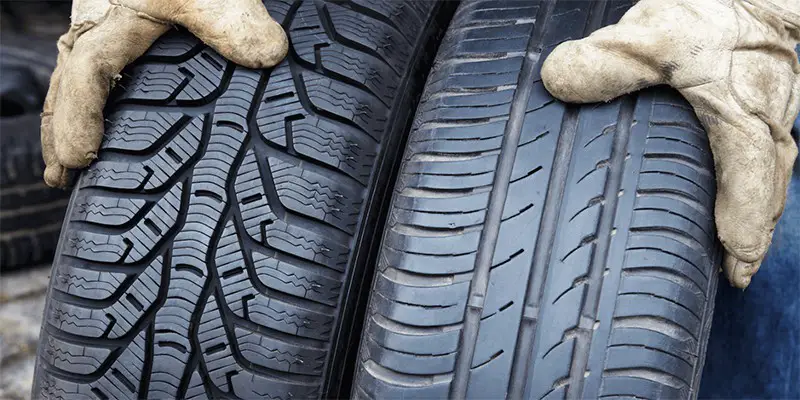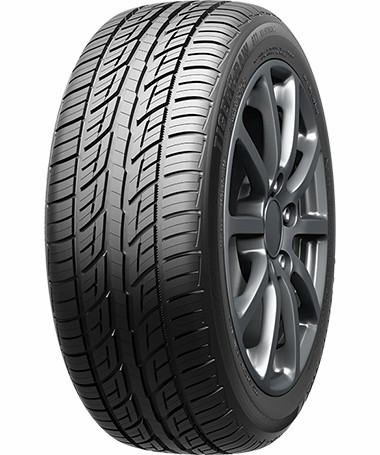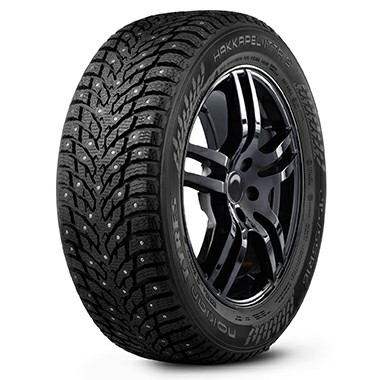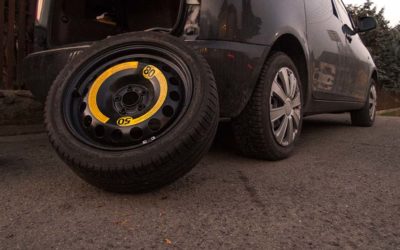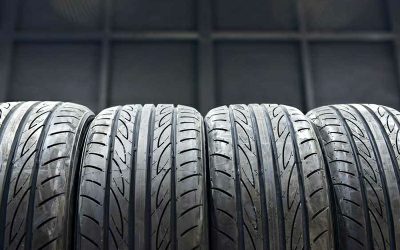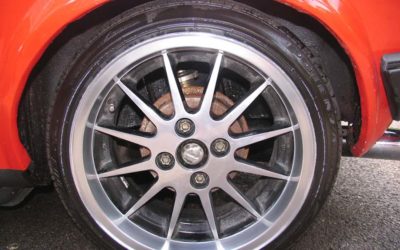Tire manufacturers always know how to classify their products into many categories for distinct purposes. From the battle of all-season tires and winter tires, each type of tire possesses different characteristics for its purposes, as well as terrain preferences.
To protect your wheels, you need to know which type of tire is the best for traveling in different weather and terrain. Choosing the right tire for your car can assist you in driving more safely and lengthen your wheel’s life expectancy.
All Season Tires
This type of tire is specially created for multiple purposes, helping you travel on almost every terrain and weather. It is the most common choice on the market for the daily use of an average driver to commute from place to place efficiently.
Due to its everyday usage purposes, the design of this tire is a combination of various improvements from different types of tires. For example, the treads of all-weather tires are usually deeper than normal ones for easier maneuvering in difficult weather conditions.
All-weather tires are useful for drivers in tropical regions or temperate areas where seasonal differences are significant. They are ideal for the daily commute with above-average performance during hard driving conditions, such as snow, mud, and sand.
Winter Tires
Winter tires are heavy-duty products that allow you to drive in critical weather conditions. This product is designed to stay durable against the cold of winter, as the name suggested, to maintain the wheel’s stability while traveling.
In general, winter tires are heavier and more complex compared with regular ones. The tread on the surface of this tire is softer and more flexible, which helps ward off frost and enhance handling and traction strength, ensuring safety for the drivers.
These tires are mostly used in extremely cold regions, where temperatures are frequently below zero degrees Celsius (32 degrees Fahrenheit). Their price is also significantly higher than regular ones due to high-quality materials and manufacturing costs.
Comparison Of All Weather Tires Vs Winter Tires
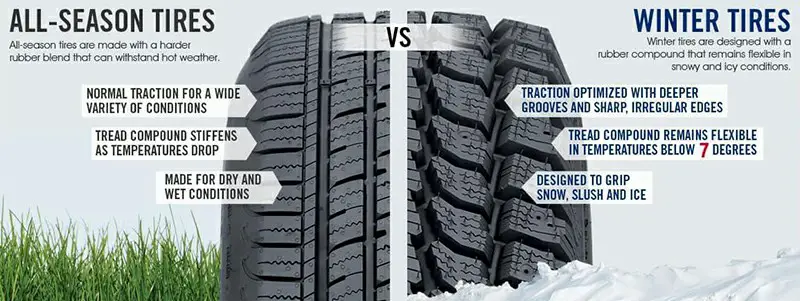
| ALL-SEASON TIRES | WINTER/SNOW TIRES | |
|---|---|---|
| ROAD CONDITIONS | Rain, dry, some light snow ~45ºF and up. | Snow, ice, rain, and slush ~45ºF and below. |
| TREAD | Shallower grooves offer comfort and control in most road conditions. | Deep, wide, jagged tread offers better traction in winter road conditions. |
| RUBBER COMPOUND | Rubber compound performs best above ~45ºF, and is designed for longer tread life. | Rubber compound stays soft and flexible in cold weather to help with grip. |
| SIPING | Siping in all-season tires dissipates heat and offers some added traction in wet conditions. | Winter tires will typically have more siping to maximize grip in winter-driving conditions. |
Tread Structure
Due to maintaining balance in the snow, the rubber tread of winter tires is much softer than the all-season type. Their flexibility enhances the grip of the wheel, helping the car stay on the road more firmly.
On the other hand, all-weather tires are not as flexible as winter ones, so their performance during snow is pretty much average. However, they are made to endure prolonged extreme weather conditions, increasing their lifespan beyond the norm.
Sipe Lines
The number of channels on winter tires is increased and deepened to enhance the grip on icy terrains. They are specially designed to withstand extreme cold and push ice and rainwater away from the tire’s surface to reduce the tire’s strength.
All-weather tires also have many sipe lines for the same purpose; however, they are not as many as winter tires. They can also sustain heat and add more traction for driving in rainy weather, providing grip and stability.
Road Conditions
All-season tires are designed to stay durable in almost all weather and terrain conditions, including rain, snow, dry, and sand. They also have a much longer useful life, up to nine to ten years.
As the name mentioned, winter tires work the best in extremely cold conditions, with excessive snow on the road. They are also heavier than regular ones and not very great at sustaining heat.
See more: Tire Rotation vs Wheel Alignment
Final Verdict
After careful evaluation, we decided that the winner is all-season tires! Featuring the combination of the best improvements from different types of tires, this product can help you conquer almost all terrain with little effort.
However, you can also choose winter tires if you live in cold weather areas. Thank you for reading!

